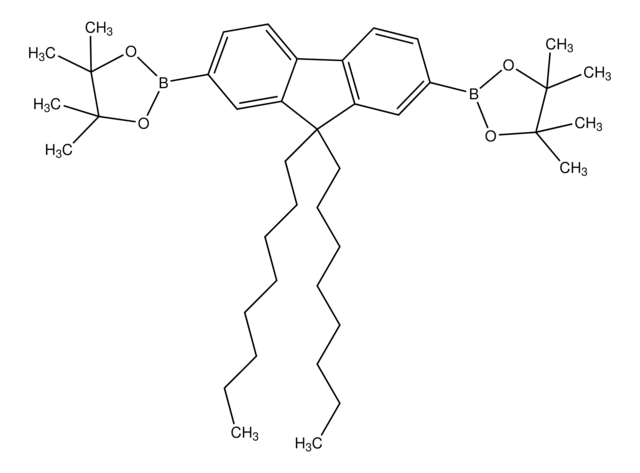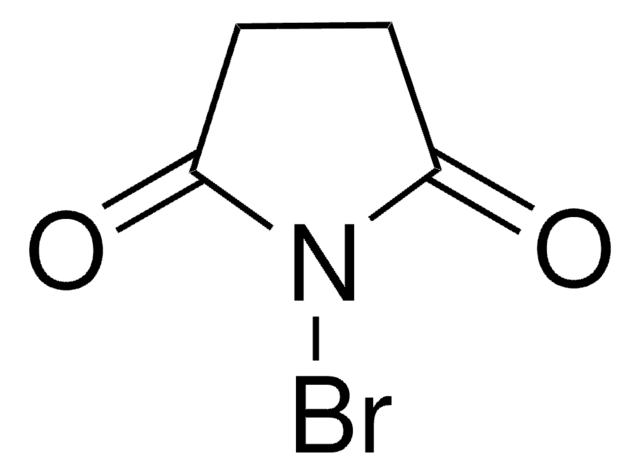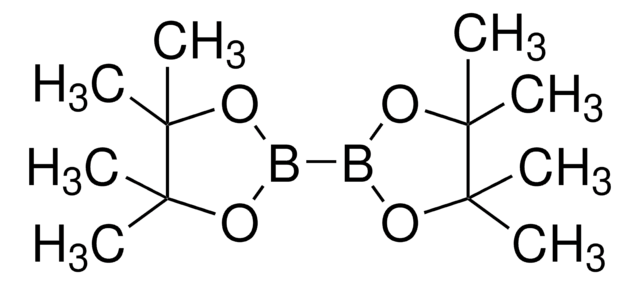569356
9,9-Dioctylfluorene-2,7-diboronic acid bis(1,3-propanediol) ester
97%
Synonym(s):
9,9-Dioctylfluorene-2,7-bis(trimethylborate)
About This Item
Recommended Products
Quality Level
Assay
97%
mp
126-130 °C (lit.)
SMILES string
CCCCCCCCC1(CCCCCCCC)c2cc(ccc2-c3ccc(cc13)B4OCCCO4)B5OCCCO5
InChI
1S/C35H52B2O4/c1-3-5-7-9-11-13-21-35(22-14-12-10-8-6-4-2)33-27-29(36-38-23-15-24-39-36)17-19-31(33)32-20-18-30(28-34(32)35)37-40-25-16-26-41-37/h17-20,27-28H,3-16,21-26H2,1-2H3
InChI key
KAYXDWIILRESPY-UHFFFAOYSA-N
Related Categories
General description
Storage Class Code
11 - Combustible Solids
WGK
WGK 3
Flash Point(F)
Not applicable
Flash Point(C)
Not applicable
Personal Protective Equipment
Choose from one of the most recent versions:
Already Own This Product?
Find documentation for the products that you have recently purchased in the Document Library.
Articles
Professor Chen (Nankai University, China) and his team explain the strategies behind their recent record-breaking organic solar cells, reaching a power conversion efficiency of 17.3%.
Our team of scientists has experience in all areas of research including Life Science, Material Science, Chemical Synthesis, Chromatography, Analytical and many others.
Contact Technical Service







